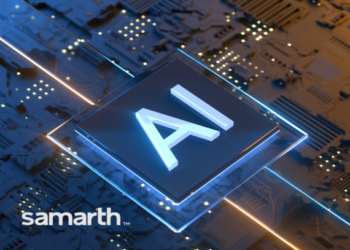AI has immense potential in many sectors especially AI-powered health monitoring for seniors. It is transforming senior healthcare in ways that we could not have imagined possible. One of the essential aspects that caregivers of seniors wish for is reliable monitoring for their loved ones. Not everyone can afford to have help at home, nor can they give up on their careers to take care of their loved ones. AI-powered health monitoring technologies can be a blessing to overcome such scenarios. In the smart cities of the future, smart homes and wearables will help track the families and healthcare systems effectively track the health and wellbeing of the seniors more effectively. Even WHO released a new policy brief, Ageism in artificial intelligence for health, to enable ethical use of AI in senior healthcare. So, what are the AI-powered options available and being explored in senior healthcare?
Health Trackers
Simple, health trackers are available in the market as wearables that are comfortable and non-invasive, and yet highly effective. These track many heath parameters like heart rates, blood pressure, blood glucose, Vitamin levels, etc. Inconsistencies can be checked to seek immediate help if there is a need. Patterns in these parameters can used to predict any serious health incidents like heart attacks and strokes to take preventive measures. Some of these are enabled with fall detection capabilities to send alerts to chosen people to take necessary action. Speeding up emergency responses is one of the most essential impacts of AI in healthcare. Some of the advanced wearables even have capabilities to predict depression, UTI, etc. based on various eating and sleeping patterns. As these technologies are being adopted widely, they are becoming more affordable, and becoming a big boon that can save lives.

Join Now >
Think one step ahead of the wearables, and you get smart homes. Connect sensors to essential devices in the homes of seniors to have a 360-degree health monitoring system. From detecting their motions and health parameters to constantly tracking their safety, smart home systems can change the way seniors live.
Virtual Companions
Through intelligent chatbots, virtual companions, and social connectors, AI-powered devices are helping seniors to live healthy. Chatbots are answering health-related queries much more authentically to relieve anxiety. In Western countries, these virtual assistants are helping bring down the unnecessary visits to the hospital, due to unwanted panic based on symptoms. Such scenarios reduce the burden on the healthcare system. There are trained robots that engage seniors on a daily basis to understand their mental and physical health. From reminding them to take medication or drink water and syncing video calls with their family members these robots help seniors to bridge many gaps to keep them hale and hearty.
Is Privacy an Issue?
One of the biggest blockers to adapting these advances is our fearful mindset that plays spoilsport. There is a worry about the way our data is being used, and the privacy breach. This is rightfully so, and there has to be a balance between the advantages and the extent of data sharing. WHO has urged people and governments to create digital literacy among the seniors and caregivers, and also consider the rights of elders. They must be made aware and allowed to make an informed choice to consent or contest.
Governments must put thoughtful regulations and frameworks in place to empower people to make their choices about their healthcare. Ethical AI concept that looks into the ethical use of AI by ensuring data privacy, and transparency must take precedence in all future AI developments. Older people must actively participate and contribute in the AI-based healthcare systems. The idea should not be to completely replace humans in the senior healthcare, but to augment it in ways that can help improve wellbeing and save lives.
The Way Forward
Seniors can choose to work with AI-powered devices to improve their everyday lives. They must also understand the implications of using AI completely and make informed choices. Whether companionship by chatting with AI-powered bots, or monitoring your health, these devices can transform the way you live and make things easier. Having open discussions about the various possibilities and guiding the direction of future research is a good idea. You can contribute to the wellbeing of the future aged population based on choices you make today.






